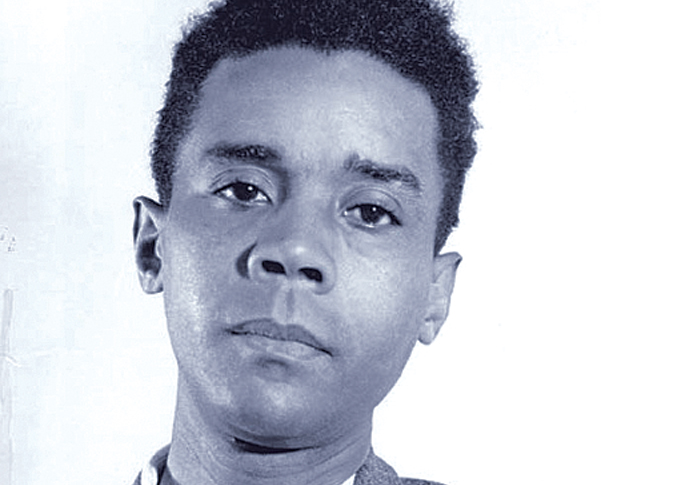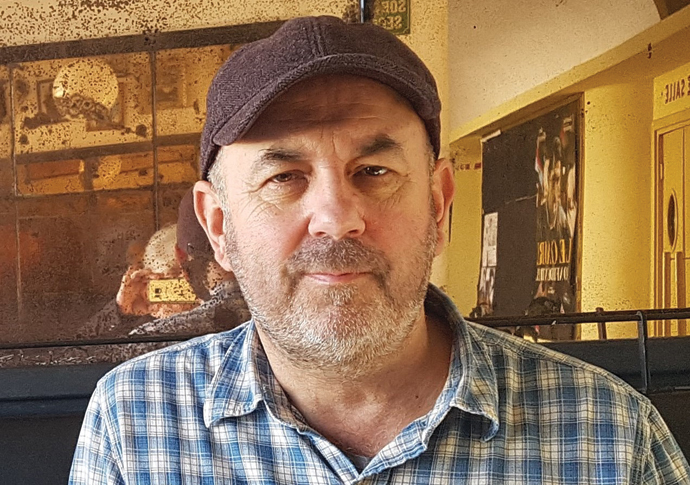Character reference
A biography of the great CLR James reveals that it was in the UK not in his native Trinidad that he was politicised, says Dan Carrier
Thursday, 3rd November 2022 — By Dan Carrier

CLR James in 1938. Photo: The Constantine collection
THE obituary of CLR James in The Times described him as the “Black Plato”.
When CLR died in 1989, he had lived a life that encompassed an infancy in Victorian Trinidad, a youth that saw him embedded in the study of literature, and a political awakening that took him through the drawing rooms of Bloomsbury to the cobbled streets of Depression-era industrial England. He was a major player in American radical politics – focusing on both class as well as race issues – and would advise both key figures in the anti-colonial pan-Africa movements but also work to create a federation of Caribbean island states.
A writer and revolutionary, CLR – who spent his time in the UK living in Bloomsbury and Hampstead – has become synonymous with British black politics, Trotskyite communism and cricket.
Now, a new biography by John L Williams, delves into CLR’s character to create a rounded and fascinating picture of a man who was embroiled in the great political discourses of the 20th century.
John, who has previously written widely on politics, music and sport, noted how CLR’s written output – his two best known books, The Black Jacobins and Beyond A Boundary are considered classics of their types – there were no detailed story of his life.
“I have always been interested in CLR and there was not really a biography out there,” he told Review.
“He was someone who was a big influence on me. I had read all his books, I am a cricket lover and I was involved in the Rock Against Racism so his work resonated.
“He brought together politics, sport and in a way that was unusual at the time.”
With CLR’s politics dissected and his views criticised, John wanted to explore the circumstances that created his political awareness that was deeply entwined with an understanding of English literature – and how the written word wielded power to influence.
Born in Trinidad in 1901, he was the son of a school teacher, a family descended from people stolen into slavery.
An intellectual protege, aged nine he won the illustrious scholarship to the Queens Royal College – the island’s leading school, modelled on the English public school. Winning the scholarship marked him out as the brightest pupil on the island. But instead of flourishing, CLR rebelled – but in an intellectual manner, dumping his studies of maths and sciences for hours engrossed in William Thackeray and Victor Hugo.

Author John Williams
He took up teaching in his 20s and in 1932 left the island to work in London.
Surprisingly, considering the class and race issues in Trinidad, it was not here CLR was politicised, says John.
“When he was in Trinidad, he was really a literary figure,” says the biography.
“He wanted to write the great Trinidadian novel. It was only when he came to Britain that he was immersed both into the progressive atmosphere of Bloomsbury but also the radical working class of northern England.”
John spoke with people who knew CLR personally – and benefitted from the reams of letters he penned held in archives in New York, Trinidad and Detroit.
“What really got me inside CLR was his letters,” Williams said.
“He wrote thousands of really dense letters to his comrades. Most are about political thought and actions – but then, every so often, the man himself will bubble up. He will start talking with real honesty about, for example, his relationships.
“There was a lot written about CLR’s intellect and his brilliance but what really comes out from reading the letters is his fragility.”
This expansive, richly written and enlightening biography marries the crucible of 20th-century political philosophy, the battles between different strands of left-wing thought, with his other great passion – cricket. It reveals how sport is used as a metaphor for the battles we play out between competing interests. It also shows how the written word can create a looking glass to study a life through.
While CLR’s life was fraught with troubles both internal and external – poverty, health, relationships, racism, war – his story ended on a redemptive and happy note.
“As he got older, he was sure no one was interested in him, sure no one cared what he thought, what he had written,” says John.
“His books were widely ignored and he felt his time and influence had disappeared.”
But aged 80, he left what the quiet contemplation provided in Trinidad to face the politics of Thatcher’s Britain.
He was a voice that was needed.
“When he returned, people started taking interest in what he had to say,” observes John.
“Young people were coming to him. His work was being reissued.”
His place in our shared cultural life was assured when he was asked by the BBC to write and narrate five programmes about Shakespeare.
“He became an inspiration and remains one today,” adds John.
“CLR understood issues around identity politics and being aware of your cultural history. He always wanted to know more, he wanted to learn from everyone, and that is why his politics could develop and evolve. He never lost interest in the lives of others: he would ask people he met in detail where they were from, what their background was. He always wanted to know more about the world: he had the attitude that you learn from everybody.”
• CLR James: A Life Beyond The Boundaries. By John L Williams. Little Brown, £25